Father’s Day is a moment of celebration in many parts of the world, a time to honor and cherish the men who have shaped our lives. Yet in Gaza, this day takes on a different meaning, one fraught with grief, pain, and an unyielding spirit of resilience. For countless Palestinian fathers, Father’s Day is a reminder not just of their role as caregivers and protectors, but of their enduring struggle against a backdrop of violence and loss.
A Personal Connection Amidst the Pain
As a diaspora Palestinian from the U.S. and Chile and a professor of clinical psychology, I often find myself reflecting on the narratives emerging from Gaza. This Father’s Day, my thoughts are drawn to a particular conversation with my 15-year-old son. He listened intently as I spoke about my work, striving to contribute to healing and justice amidst the continuing atrocities in Gaza.
His response was one of admiration and empathy, a simple yet profound acknowledgment of the efforts and the unspoken burdens that come with fighting for a cause so deeply interwoven with personal loss. In his eyes, I saw a reflection of the universal bond between father and child – a bond that persists even in the face of unfathomable hardship.
The Weight of Loss and the Struggle for Justice
The narrative of grief among Palestinian fathers is one that stabs at the heart. These men have lost their children, their homes, and their livelihoods. Each loss is a painful testament to the conflict that has ravaged the region for decades. The faces of the fathers who have buried their children are etched with sorrow, yet they are also marked by a fierce determination. They continue to fight for their families, their dignity, and their right to live freely – a struggle that demands an extraordinary strength.
It is essential to acknowledge their pain, to listen to their stories. In doing so, we bear witness to their experiences and validate their struggles. This is not just a matter of compassion, but of fundamental human rights.
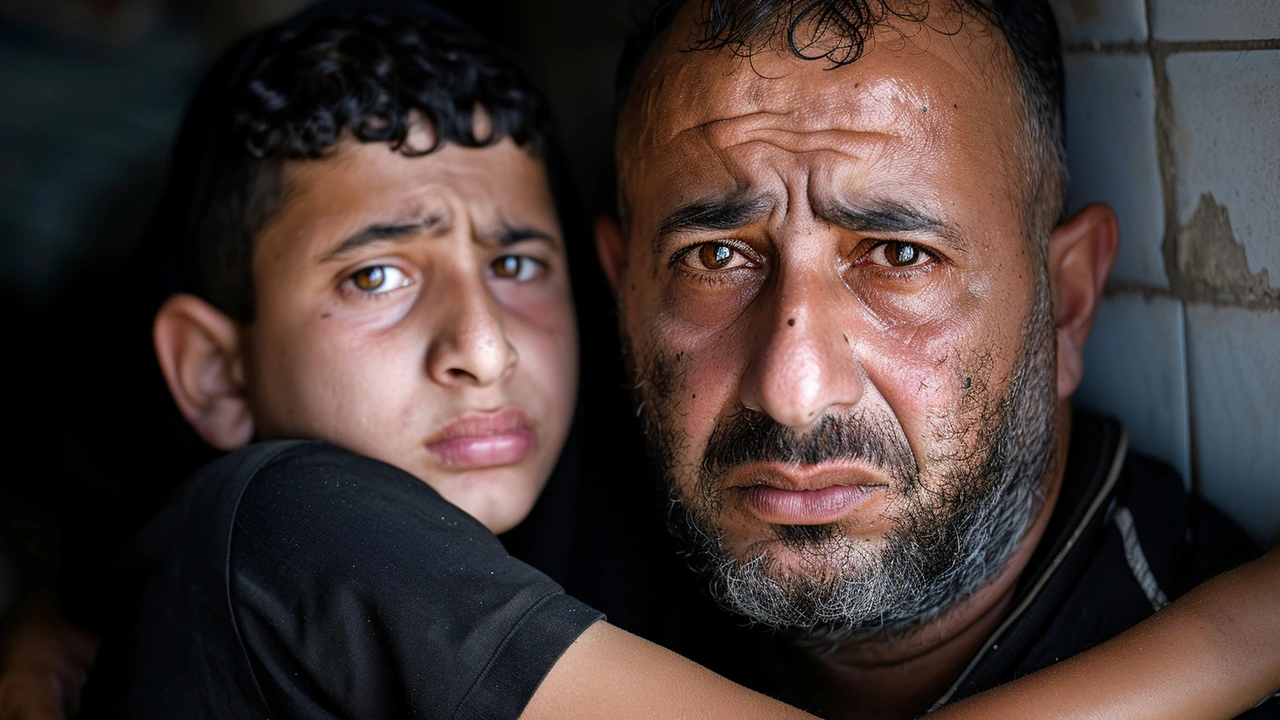
The Power of Resilience and Love
Despite the devastations, the resilience of Palestinian fathers is awe-inspiring. It is a testament to the power of love that these men continue to push forward, advocating for a life where their children can grow without the constant shadow of violence. They teach their children the values of peace, justice, and empathy, even when the world around them seems devoid of such ideals. These lessons are passed on quietly, through acts of kindness and bravery, creating ripples of hope amidst despair.
| Statistic | Figure |
|---|---|
| Children killed in Gaza (2021) | Over 60 |
| Homes destroyed | Hundreds |
| Percentage of youth experiencing PTSD | 40% |
A Call for Change
The situation in Gaza requires an urgent and permanent cease-fire. The end to the Israeli occupation is not only a demand for political change but a plea for recognition of Palestinians as full human beings. For too long, their suffering has been ignored or diminished. It is time to acknowledge their right to live with dignity and peace.
As we honor the fathers who have been killed while protecting their loved ones, we must also strive to build a future where such sacrifices are no longer required. In celebrating Father’s Day, we should remember the value of life and love, and commit ourselves to supporting those who fight for these principles under the most challenging conditions.
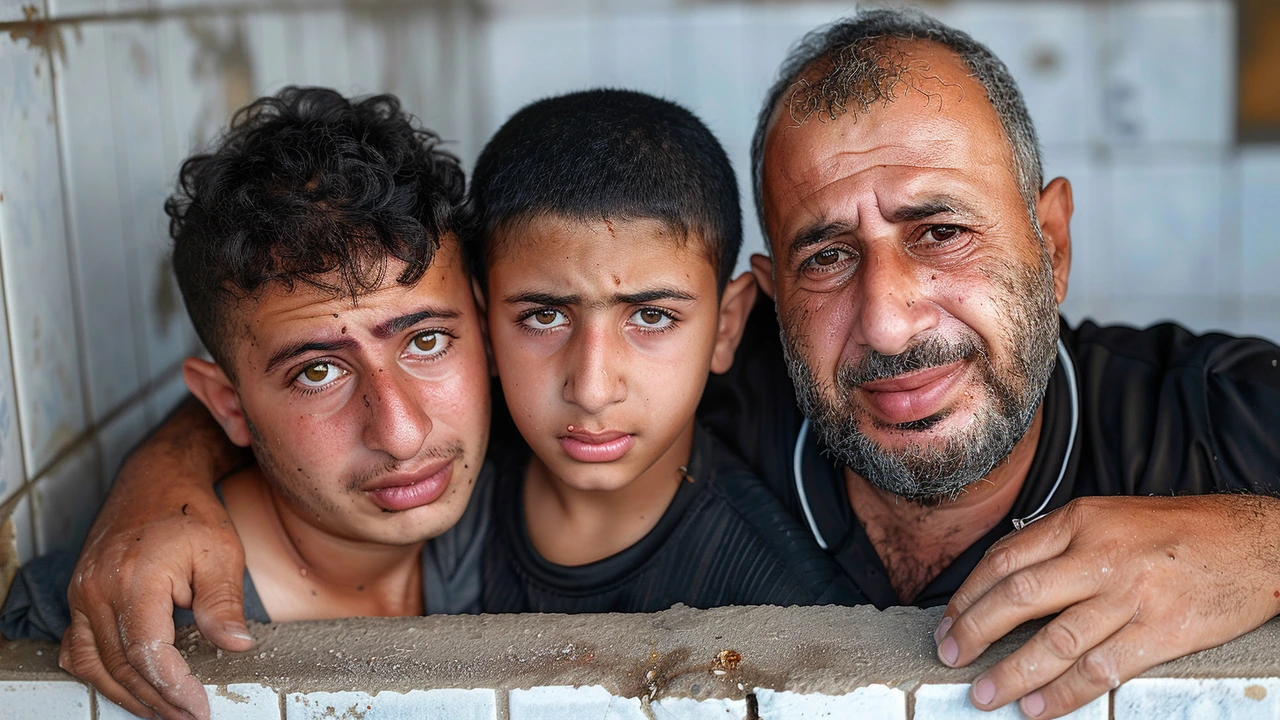
Honoring Their Legacy
The stories of Palestinian fathers are harrowing yet inspiring. Their sacrifices and their unwavering love for their families are testaments to the human spirit’s resilience. As we think about them this Father’s Day, let us recognize their strength and their enduring hope for a better future. It is through their eyes that we see the true cost of conflict and the unbreakable bond of love that can endure even the greatest of adversities.
In conclusion, the journey of these fathers reminds us of the broader human experience, one that transcends borders and conflicts. Their grief is our grief, their hope our hope. And their fight for a better tomorrow is a call to all of us to act with empathy, justice, and compassion. This Father's Day, may we honor their legacy by advocating for the change they so desperately need and deserve.

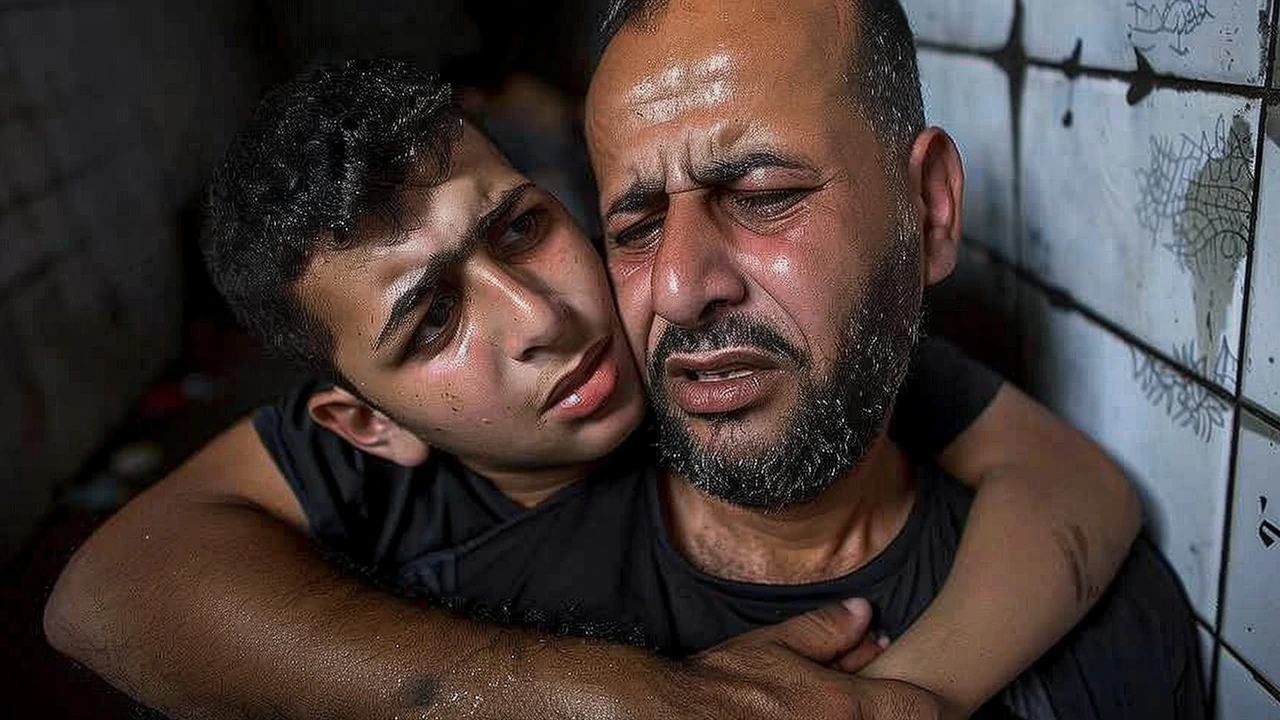
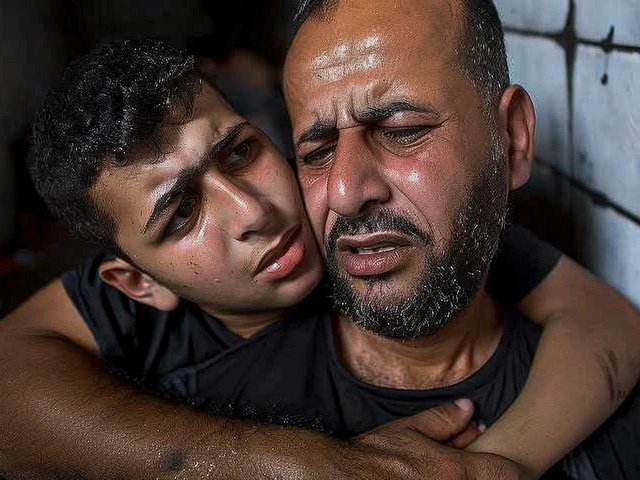
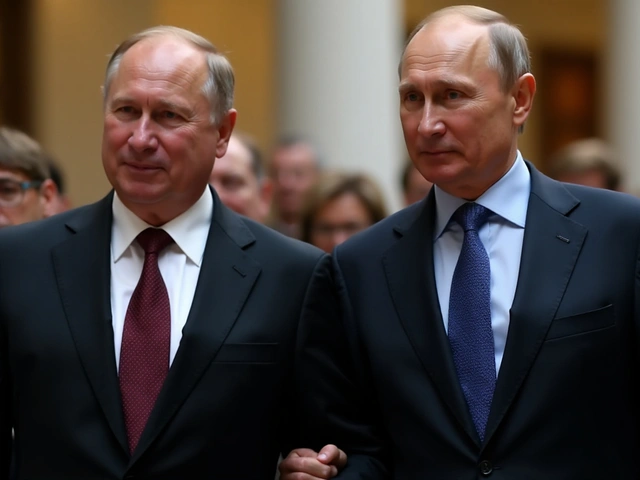
Comments
Your words honor the fathers who endure unimaginable hardship.
Dude, this piece shines a massive spotlight on the relentless spirit of Gaza’s fathers, and let me tell you, the world needs to hear it loud and clear!!! The statistics you dropped-over 60 children lost, hundreds of homes shattered-are not just numbers, they are cries for justice!!! As a mental‑health advocate, I can add that trauma‑informed interventions are crucial, so NGOs should prioritize community‑based counseling NOW!!!
What a heart‑wrenching tapestry of loss and love-so vivid it cuts right through the screen!!! The resilience of those fathers feels like a phoenix rising from ashes, a legend whispered in the ruins!!! You can almost hear the echo of each lullaby they sing, trembling yet defiant, against the thunder of cannon fire!!!
The phenomenon of paternal grief within the context of protracted conflict merits a comprehensive interdisciplinary examination that integrates sociopolitical analysis, psychological trauma theory, and cultural anthropology.
Historical records indicate that fathers have traditionally occupied the role of primary protectors and providers, a status which becomes profoundly destabilized when external aggression disrupts familial structures.
In Gaza, the systematic destruction of homes and the indiscriminate loss of offspring have precipitated an acute breakdown of the protective function traditionally ascribed to fathers.
Empirical studies conducted over the past decade reveal that approximately forty percent of Gaza’s youth exhibit symptoms consistent with post‑traumatic stress disorder, a statistic that underscores the intergenerational transmission of trauma.
Consequently, the psychological burden borne by fathers is not solely personal but also collective, as they navigate the dual responsibilities of mourning and sustaining hope for future generations.
Clinical observations suggest that paternal coping mechanisms often involve the cultivation of community solidarity, whereby shared narratives of loss become a source of communal resilience.
Moreover, the act of memorializing deceased children through oral history and ritual performances serves both as a therapeutic outlet and as a cultural repository of identity.
From a policy perspective, the absence of durable cease‑fire agreements exacerbates the volatility of these coping strategies, rendering them precarious and unsustainable.
International humanitarian law obligates signatory states to protect civilians, yet the persistent violation of these statutes in Gaza creates an environment where paternal agency is continuously undermined.
It is therefore imperative that humanitarian organizations allocate resources toward establishing safe spaces where fathers can engage in trauma‑informed group therapy.
Such interventions have been shown to reduce depressive symptomatology and to strengthen familial bonds, thereby contributing to broader societal stability.
Additionally, educational programs that empower fathers with conflict‑resolution skills can foster a climate of non‑violence within the community.
Academic discourse also emphasizes the significance of integrating local cultural practices into therapeutic frameworks to ensure relevance and effectiveness.
In sum, the resilience demonstrated by Gaza’s fathers is a testament to human endurance, yet it should not be romanticized as a substitute for concrete political solutions.
Only through a concerted effort that combines immediate humanitarian aid with long‑term political reconciliation can the cycle of grief be transformed into a narrative of sustainable hope.
Recognizing the steadfast courage of these fathers can inspire policy makers to prioritize protective legislation, and it also calls upon each of us to stand in solidarity, championing a future where families thrive without fear.
It is crucial that relief agencies adopt evidence‑based approaches, ensuring that the psychological needs of fathers are addressed alongside physical reconstruction, thereby fostering holistic recovery.
Man, the love these dads show is literally off the charts-so raw, so real, it kinda blows my mind!!! Even in the midst of rubble, they keep shinin like a lighthouse, guidng their kids through the stormy night. It's like, they defnitely turn pain into power, and that's just awe‑inspiring!!!
This article romanticizes suffering; it glosses over the root causes and pretends that mere storytelling will fix the siege, which is naïve and counterproductive.
From a neuro‑psychological perspective, chronic exposure to conflict triggers dysregulation of the HPA axis, exacerbating allostatic load in paternal populations.
Some parts feel a bit repetitive 😐 but overall the piece captures the emotional weight well 😊
We can all help spread awareness and hope 😊
The cultural tapestry of Gaza, woven with centuries of tradition, faith, and communal bonds, provides a profound backdrop against which the personal narratives of fathers unfold, illustrating how identity and resilience are inextricably linked; when we consider the historical continuum-from Ottoman rule through the British mandate to contemporary geopolitical tensions-we see that the role of the father has evolved yet remained anchored in the principles of protection and pedagogy; this evolution is mirrored in the psychological frameworks that describe coping mechanisms, wherein collective memory serves both as a source of pain and as a reservoir of strength, enabling fathers to navigate the paradox of mourning while fostering hope for their progeny; thus, the intersection of anthropology, psychology, and political science offers a fertile ground for interdisciplinary scholarship that can inform both humanitarian interventions and policy reforms, ensuring that the voices of these men are not merely heard but integrated into actionable change.
While I appreciate the heartfelt narrative, one must also acknowledge that true progress requires strategic advocacy from influential circles, not just empathetic reflections.
It would be beneficial for future reports to incorporate granular data on mental‑health service utilization among fathers, thereby providing a clearer picture of intervention efficacy.
We need more community centers where dads can gather and heal together its essential for rebuilding our future
The mainstream narrative conveniently ignores the covert agendas of external powers that profit from perpetual instability, turning Gaza into a perpetual theater of suffering designed to distract from their own geopolitical machinations.